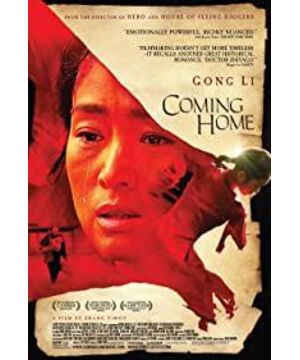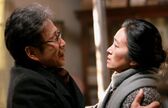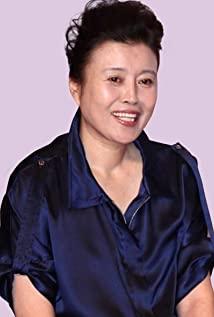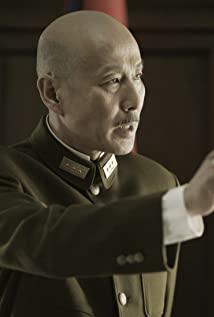But Feng Wanyu lost her memory, and she almost forgot her husband Lu Yanshi. It's also the fault of the times. If it wasn't for Feng Danyu to fight for the chance to be the protagonist of "The Red Detachment of Women", she would not have told the organization about her father's secret, and Feng Wanyu would not have been smashed in the head in the push and shove on the overpass. Feng Wanyu's amnesia conveyed in the movie happened a year or two after the Tianqiao incident, and it seems to be related to her entanglement with Master Fang in order to protect Lu Yanshi.
In the scene on the overpass, the "prisoner" Lu Yanshi was taken away by comrades from the farm. Similar scenes have also appeared in many novels about the Cultural Revolution. For example, Song Fanping in Yu Hua's "Brothers" escaped from the warehouse where he was imprisoned in order to pick up his wife who had returned from medical treatment at the station, but was beaten to death by the Red Guards who chased him at the station. I once asked my grandmother what the small town was like during the Cultural Revolution. My grandmother said that every day the "counter-revolutionaries" were sent to a flat area on a hillside for criticism, wearing tall hats and sticking notes. That hillside is also the place where the prisoners were shot. I guess every time the execution is carried out, it should be as lively as in [My 11], surrounded by people.
Forced separation, whistleblowers, starvation, executions, suicides... all are the fault of the times. In the movie, Feng Wanyu said that she would never forgive her daughter who confided in her. Lu Yanshi told her indifferently that he knew that she had denounced the whistleblower, and took all the mistakes on himself. The movie eschews the darkest parts of the original book, such as being betrayed and cannibalism.
Zhang Yimou bypassed the sensitive area of censorship and laid out a story about a whistleblower among relatives during a special period, but he also used many details to suggest starvation, detention, and punishment. In the latter part of the special period, Director Li said that "the times have changed", but holding Lu Yanshi's rehabilitative document, he said, "Accordingly, this cannot be shown to you", still showing a fear of centralization. Lu Yanshi tried several times to restore his wife's memory of him, and each time he and Feng Wanyu went to the station to pick up the impossible self, until the face was pale and snow was pouring. The latter part of the post-Cultural Revolution healing process is more like the focus of the movie, and suffering is only a necessary foreshadowing.
It is not a happy ending, the pain still exists after suffering, and the sequelae of amnesia has not been cured. At best, it's just a bright ending associated with perseverance. It should be considered a tragic story, but there were several laughter from the audience during the screening. When Feng Wanyu took Lu Yanshi as Master Fang for the first time and drove him out with a serious expression, Lu Yanshi pretended to be Xiu. When the piano maker and Nianxin approached Feng Wanyu. The laughter that rose from the audience was in stark contrast to the sobbing of the girls next to him. The era of single values had long since passed. There was also laughter when Guo Tao and Zhang Jiayi appeared for the first time. It was the kind of laughter that was independent of the plot. When Zhang Yimou was asked about Spielberg crying while watching the demo, he said, "He probably shares the fate of people in this kind of family and in this difficult environment (Spielberg is Jewish). … In fact, it (the movie) is not a superficial tearjerker, it should be a resonance of the fate of people under the historical accumulation.”
The personal suffering in the first part of the movie is difficult to say, and the emotional recovery in the latter part is too hard, only The rest is sensationalized by the acting skills of the leading actors. After the passage of time, the most primitive "resonance of destiny" that Zhang Yimou said may not be left. Another example is the movie "Alive" and the novel "Alive", also directed by Zhang Yimou and adapted from the novel. Much brighter ending. However, the helplessness of personal fate and the tide of history, the forbearance and tragic solemnity of personal resistance, are far more profound than [Return]. Under the dual coercion of politics and business, or coupled with the accumulated flexibility of doing things over time, from [Three Shots Paid the Table Surprise] to [Love of Hawthorn Tree] to [Jinling Thirteen Hairpins], and finally to [Return] , Zhang Yimou is hard to keep people looking forward to it.
On the mainland, [Alive] is still banned. Eleven years earlier, Zhang Yimou participated as a photographer [one and eight]. The plot at the end was originally a little girl surrounded by Japanese soldiers, and there was a thin smoker among the prisoners. Before that, she behaved very obscenely and always wanted to tease the little girl. , but he looked at her, there was only one bullet left in his hand, he aimed at the little girl, and the bullet hit her in the back. This ending, however, encountered a rule when submitting for trial - one's own people can't kill one's own people. So the ending later became "The skinny smoker had enough bullets, and he killed all the bullets. The last one, the old and the young, carried a lot of guns and faced the sunset."
Zhang Yimou filmed [one and eight] that year. , his daughter was born and named Zhang Mo. More than 30 years have passed, and the young children of that year have become a member of the film industry, but they still have to go to great lengths to continue to write bright stories with their parents. Under the dual oppression of politics and business, the witnesses and close associates of so many fragments of the times are still almost unable to record their times with video freedom.
———————————————————————————
*Note:
[One and Eight] The original ending refers to "Half a Century Speeding Outside, Lord Dai's The theater is always bright", the author's sincere voice. Published in "People" 2014 issue 05.
View more about Coming Home reviews











